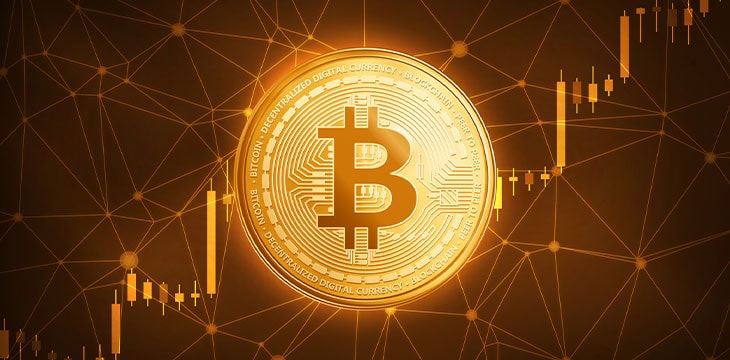|
Getting your Trinity Audio player ready...
|
This post originally appeared on ZeMing M. Gao’s website, and we republished with permission from the author. Read the full piece here.
“Opposing Views: Money, Bitcoin & Role of the State” on Real Vision is an interesting conversation between Mike Green and Robert Breedlove, moderated by Real Vision senior editor Ash Bennington. Mike is the Chief Strategist and portfolio manager at Simplify Asset Management. He is a well-known Bitcoin bear. On the other hand, Robert, founder of the “What Is Money?” podcast, is one of its most vehement proponents. Their disagreements originate from deeper convictions surrounding the proper methods of organizing society and the economy.
I believe Mike has a proper understanding, while Robert doesn’t. Robert’s view is typical BTC digital gold narrative with a distortion of the reality.
It is fashionable to blame government today, but the human history tells us that the biggest threat to private property is not the government (not that governments are perfect), but anarchism. Anarchy totally destroys property rights, while different forms of governments have various degrees of success in protecting property rights. In that regard, one can objectively say that the U.S. government based on the U.S. Constitution (which Robert correctly connected to the English tradition and system typified by Magna Carta) has done a far better job in protecting private property than any other forms of government in human history.
Mike’s point on the “takings clause” in the U.S. Constitution (government’s constitutional right under the U.S. Constitution to take private property with just compensation) is a very basic argument that people tend to miss. If a people want to live in a society under the rule of law, the takings clause is the least they have to agree to give to the government. Without it, there is no government. The difference is that the U.S. Constitution actually explicitly stipulates it, while many other governments simply take for granted that such right can be unlimited without a clear definition nor any question.
The question is under what circumstances is government taking justified, not whether the government should have any taking right or not.
However, the takings clause barely even touches the essence of the relationship between Bitcoin and the rule of law, where the confusion and misunderstanding run so deep that a conversation like this, even with so talented individuals as Mike and Robert, doesn’t adequately cover.
In this regard, pitching “Bitcoin” (really just BTC in Robert’s narrative) against the central banking system as “Laissez-Faire versus centrally planned” is ambiguous at best, and even misleading. It is one thing to argue for a Laissez-Faire monetary system, and quite another to argue that such a system should be beyond the reach of the legal system.
Given how corrupt the current central banking system has become, a Laissez-Faire monetary system would be great. But the question is, how to reduce the corruption? Assuming that a Laissez-Faire system is inherently less corrupt than a central planning system is naïve. Private individuals, groups, oligarchs or any other form of private powers, can not only be corrupt but also be more harmfully corrupt than a government.
Unless you believe in human utopia, the rule of law is the only system that has been proven to be at least partially successful in reducing corruption. Therefore, it is important to ask this question: which system supports the rule of law?
In addition, the question of Laissez-Faire versus centrally planned is also a relevant inquiry even when comparing two private systems. For example, it would be a relevant comparison between BSV vs. BTC, in which BSV is a Laissez-Faire economic system while BTC is centrally planned. See BTC and BSV what is the real difference.
Our hope is to build a system that improves transparency so that government abuse is minimized, not to create an ostensibly “public system” that is actually under control of a small number of private individuals or groups, which is really what BTC has become today.
There is no equity, fairness and general welfare in BTC. It is all opportunism with no regard of actual value creation (actual productivity). See for example, Why is BSV a value creating system while BTC a value absorbing system.
But BTC is not the real Bitcoin. The original Bitcoin was created to (1) support stronger property rights under the framework of rule of law; and (2) increase productivity with unbounded scalability and ridiculously low costs. BTC is the opposite.
We owe it to ourselves and to the society to search honestly and find out what the real Bitcoin is, and support both the truth and the general welfare (in the meaning of the U.S. Constitution) of people.
Watch: CoinGeek New York panel, Blockchain: The Future of Technology Building on Achievements of the Past
https://www.youtube.com/watch?v=lK8-86QLmIs&feature=youtu.be

 02-21-2026
02-21-2026 




